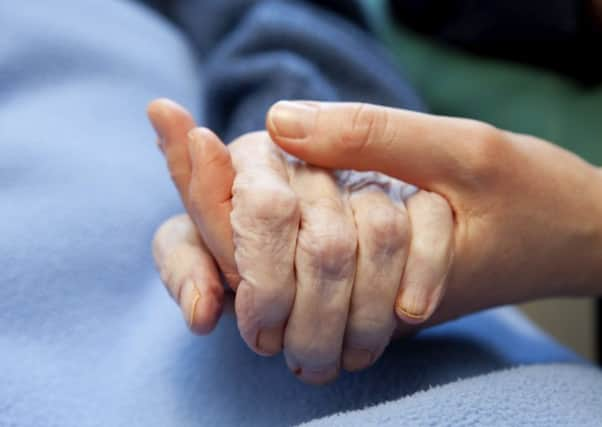Richard Meade: We need to rethink how we care for older and dying people


The issue of delayed discharges is one that we can’t ignore. Rightly, NHS Lothian interim chief officer, Jacquie Campbell and Rob McCulloch Graham from Edinburgh Health and Social Care Partnership (EHSCP) have identified this as a concern and a priority issue in their response to the figures.
It’s clear that the Scottish Government and the four Lothian Health and Social Care Partnerships must rethink how health and social care is delivered to prevent a crisis in caring for older and dying people. The £30 million extra per year for tackling delayed discharge promised by the Scottish Government is a good start but real change is needed to meet people’s needs without causing additional strain on local authority budgets.
Advertisement
Hide AdAdvertisement
Hide AdWhen someone is diagnosed with a terminal illness which will likely lead to their death, time is often sadly too short. In Edinburgh around 3300 people will die each year with a palliative care need and we know that not all of them will get the care that they need.
In December Marie Curie published a report with the Association of Palliative Care Social Workers, Hospice UK and MND Scotland. In Dying to help: A report into social care at the end of life, we called for a responsive social care sector that delivers coordinated, seamless care to make sure someone lives and dies well.
We can also all play our part by planning ahead and have open and honest conversations with loved ones about our wishes for our own possible illness and death. The development of advanced plans with health and social care staff can ensure the right care is in place and help prevent unnecessary admissions to hospital or enable shorter stays and quicker discharge.
We know through our Lothian Fast Track service that it is possible to provide better support to people at the end of life. The Fast Track service, which is delivered in partnership with NHS Lothian and local authorities, offers short day and evening visits at home to provide health and personal care. Last year our team made 2616 community visits, successfully helping prevent avoidable admissions and reducing the number of delayed discharges. For patients and families experiencing a very difficult time the service can help bridge any gaps between services like the District Nursing service and care agencies.
We all have a stake in this. No one provider can do this in isolation and there’s plenty of work to be done.
Richard Meade is Head of Policy & Public Affairs, Scotland for Marie Curie